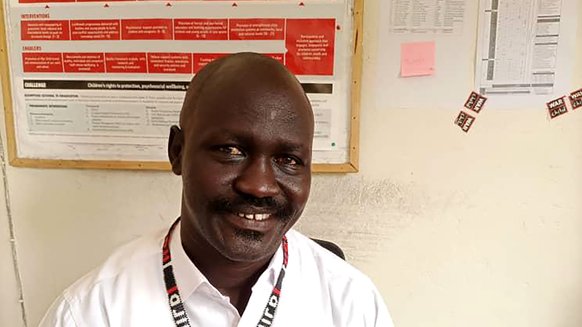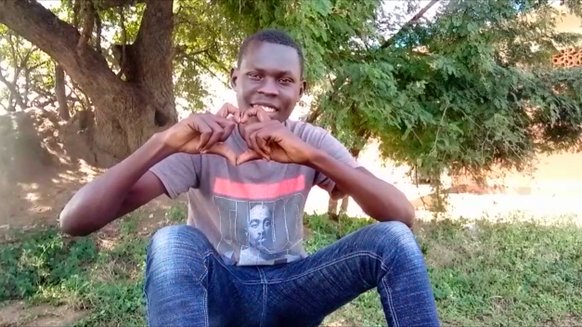Former Child of War: “Mental Health is Still the Priority”
Oct. 10, 2022
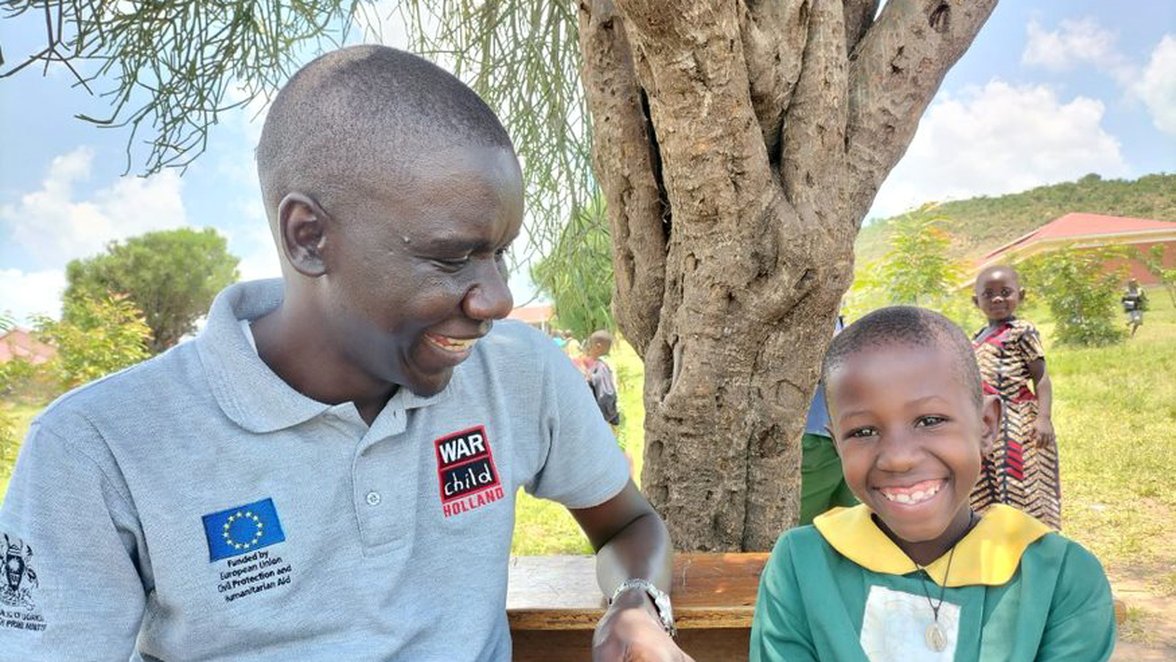
Persistent lack of mental health funding
On top of a historic lack of funding, less than 50% of people with mental health challenges worldwide currently receive the care they need. In low-income countries - like the countries where War Child has a presence - this figure is estimated to be even lower - with a mere 10% able to access support.
“The scary thing is that the need is only getting bigger”, says Ocen Daniel, a Psychosocial Support Team Lead for War Child’s programme in Uganda. “The whole world is a war zone right now - Uganda is receiving around 1,000 refugees from DR Congo on a weekly basis, even the West is feeling the effects…
“Yet, the global response doesn’t reflect that. It’s very frustrating because I am seeing every day what effect this support can have on young people affected by war.”
War and flight
Daniel is not only referring to his six years as a psychosocial support expert, he’s also experienced war and flight first hand.
It was 1999 at the height of civil unrest and political rebellion in Uganda. “I was six years old when we first experienced an attack in my village”, he recalls. “I ran home to gather my family. No one was there. Our cows and goats were looted. My best friend was killed in the attack.”
All he knew was that he had to get out: “I walked for days and days. I saw the dead bodies of young and old; it affected me and haunted me wherever I went. If I saw soldiers in the distance, or people walking in lines, I would get frightened and go back into hiding. Every day felt like forever.”
Spending two months alone in the bush, one day a truck picked him up. Arriving in Lira, a city in the north of the country, he was greeted by a few distant relatives, yet his parents and siblings; his friends and loved ones were gone.
Psychological impact
“It was the most challenging moment of my life”, says Daniel. Angry and weak, he joined the local street kids. “I feasted in the garbage bin, eating leftovers from restaurants - that was my life for almost five years.”
And can he put into words the impact of his experiences on his mental health?
"Now that I do this job, I can reflect and understand what happened to me back then. I became violent, overly emotional, a thief: stealing and causing alarm in Lira town. But this was all because I felt abandoned. I had no hope."
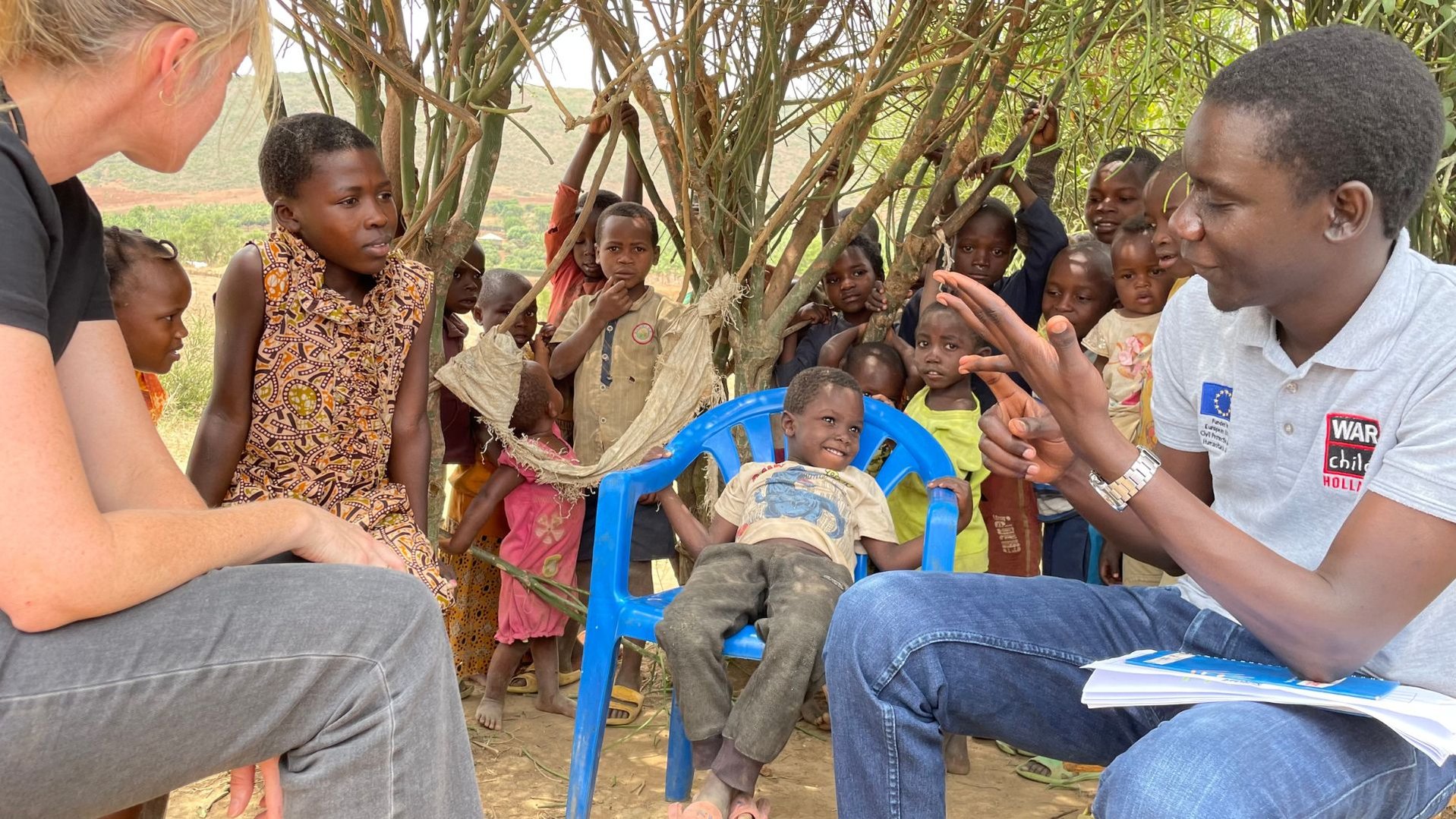
Daniel captivates this young audience in Uganda
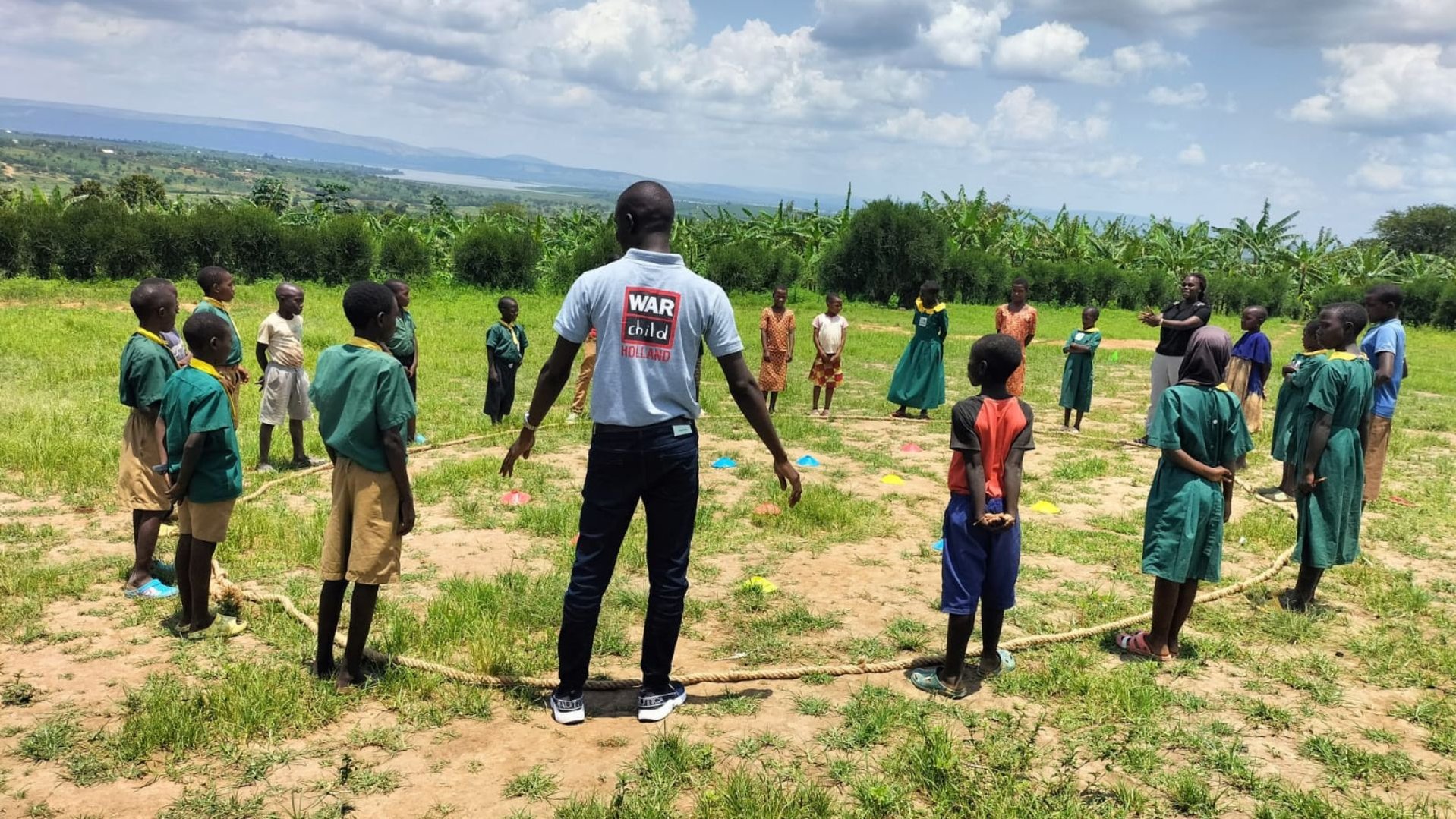
He also provides psychosocial support through movement
A lifeline
When he was ten years old, things got so bad that Daniel was arrested and taken to a nearby detention centre. “I was ready to go to jail; I deserved it”, he says. Yet, his luck was about to change…
“One day, a police women came and told me that there was a programme for me. That was my first contact with War Child.” Daniel was to be released from the remand home on the condition that he attend regular War Child sessions. “What I loved most was the new friends I made there - after losing my dearest one.”
“As part of the training I was told to set a goal”, he continues. “Something I could achieve within three months. I chose to stop stealing and behaving badly.”
Keeping the momentum
Fast forward several years and Daniel had turned his life around. He was re-integrated into school, passed his exams early, and slowly learnt to control his emotions, solve conflict and relate to others.
“The beauty is that I was able to rediscover my own worth and inner strength”, he smiles. "This is the true value of psychosocial support - something that not all humanitarian agencies focus on. We cannot take our foot off the gas, because, like I said, the need is greater than ever. If we can prioritise mental health, then look at all the other aspects - including economic empowerment - we can avoid relapse and give youth the chance to explore a future they want."
